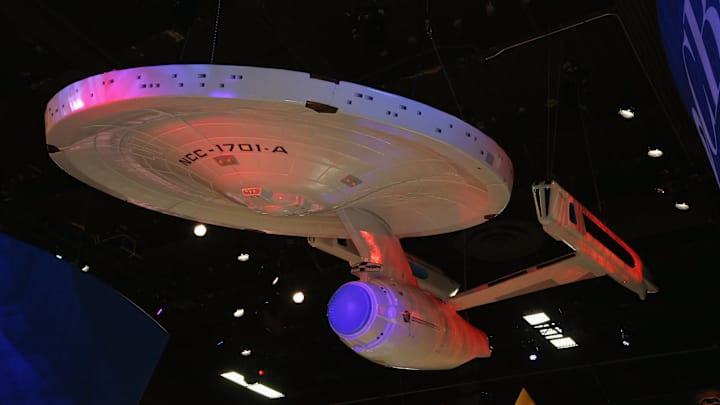In the Star Trek universe, The Prime Directive states that Starfleet officers must not interfere with civilizations that are not yet technologically advanced or are in a state of growth that can be observed but not interfered with. This means that any member of a mission or away team cannot reveal themselves or any technology not yet possessed by that civilization, so that it may advance without interference.
When one considers the possible horrors of cultural contamination, such as the events of “Patterns of Force” (S02E21), where former Starfleet educator and cultural observer John Gill caused the rise of a Nazi regime while trying to achieve peace between the planets Zeon and Ekos, the Prime Directive seems to make sense. However, the definition of interference becomes blurred when lives are on the line.
When does the Prime Directive become immoral?
Interference with other cultures causes massive problems, such as an entire civilization adopting a way of life from a book left behind by a visiting starship 100 years earlier (“A Piece of the Action”), prompting Captain Kirk and his crew to try and undo some of that damage. Whether this causes further problems or creates more trouble than it solves is questionable, as the show never revisited Sigma Iotia II. Kirk said he felt they had to interfere because it was Starfleet’s responsibility to correct the contamination, but this would not be the only time the Enterprise crew would question the Prime Directive.
In “The Apple” (S02E05), the crew comes upon a beautiful planet that at first glance seems like paradise. However, Kirk and his landing party soon discover that the peaceful natives live to serve Vaal, a machine with an entrance shaped like a serpent’s mouth. The crew soon learns that the natives do not age and simply live to bring Vaal food. This outrages McCoy, who says, “This isn’t life—it’s stagnation!” In this case, Kirk agrees they must free the people of Vaal from their mechanical enslaver.
If Kirk had obeyed the Prime Directive, the people of Vaal would likely have kept on serving their mechanical god forever. In this case, he found the rule immoral and proceeded as he thought best for the good of Vaal’s people. As with the Iotians, we do not see the outcome of Kirk’s decision, but it is obvious that, despite good intentions, the Prime Directive is not always the first, best solution when it comes to the question of non-interference.
